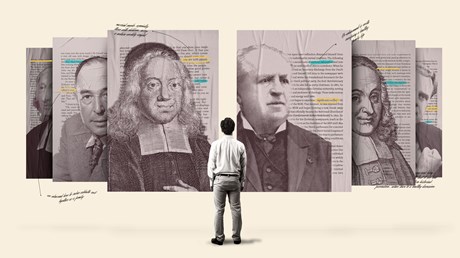To avoid hurting our marriages and families, we can learn from our forerunners in the faith.

Back in 2015, while my wife played with our three children on our neighborhood playground, I stared in dumbfounded disbelief after reading a puzzling tweet by former pastor Tullian Tchividjian: “Welcome to the valley of the shadow of death… thank God grace reigns there.”
I quickly learned that this quote referred to the recently revealed marital indiscretions of both Tchividjian and his wife. This popular icon in the Reformed resurgence movement had, like so many, been found out for disastrous misdeeds that led to the dissolution of their marriage.
When the news broke, I had just accepted an associate pastorate at Calvary Memorial Church in Oak Park and was a couple months shy of beginning doctoral studies in Christian history at Trinity Evangelical Divinity School.
For the next seven years, I went on to study the history of evangelicals. All the while, I kept on the lookout for the same historical pattern, one I didn’t want to ignore in the literature—especially since its repetition and consequences continued to play out in the 21st-century evangelical world I inhabited.
The all-too-common pattern I discovered is this: Great evangelical figures throughout history often had tragic personal and family lives. This trope winked at me repeatedly as I came across it in biographies and historical accounts of evangelical pastors, revivalists, and activists.
Evangelical history happens to provide numerous cautionary tales for what happens when ambition goes unbridled. And while some evangelicals would rather gloss over these tales or conceal them, that would be to our detriment. These warnings can be a service to the future of the evangelical story—and heeding them may prompt us to curb our ambition, ...
from Christianity Today Magazine
Umn ministry


.gif)

.gif)
.gif)
